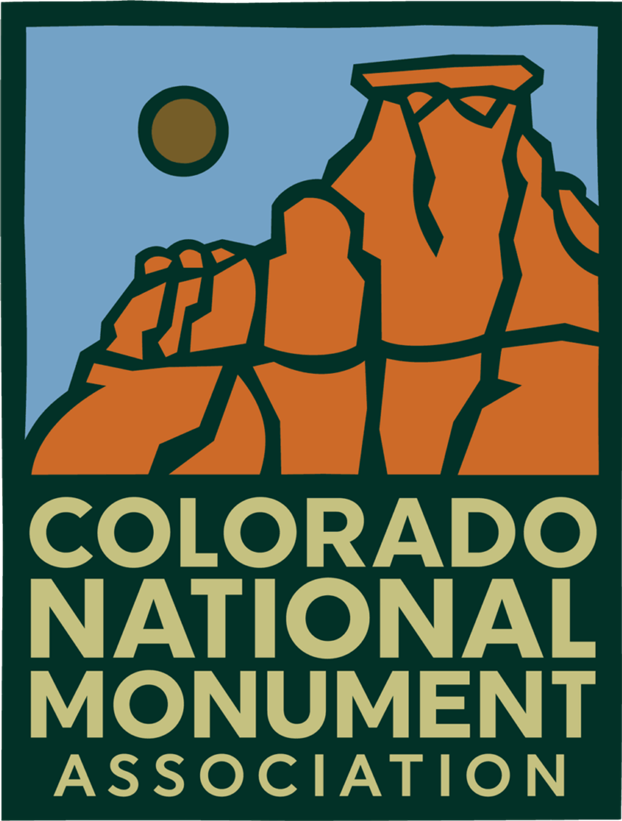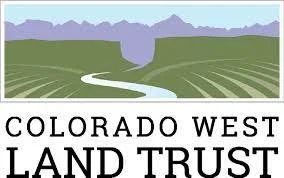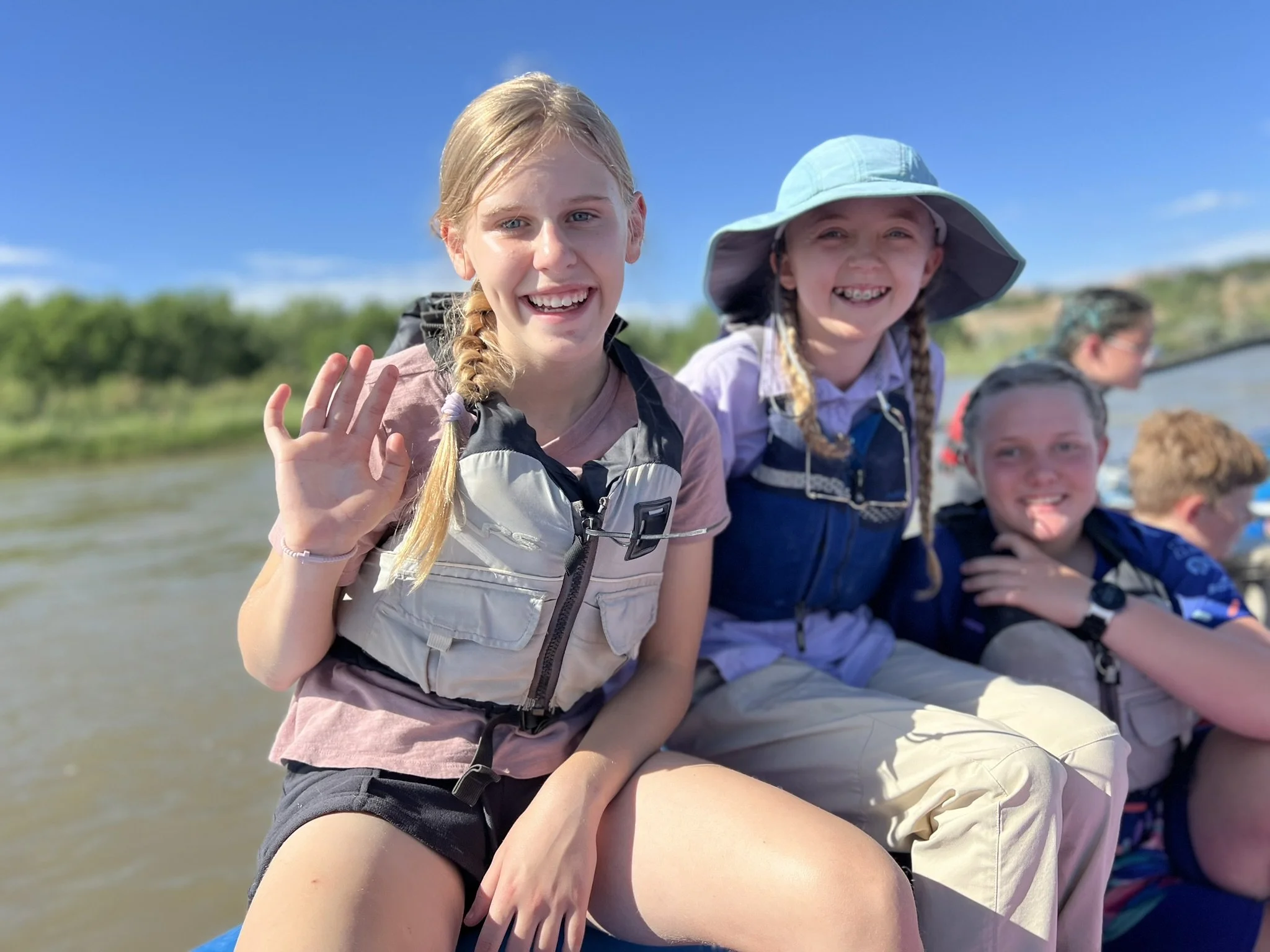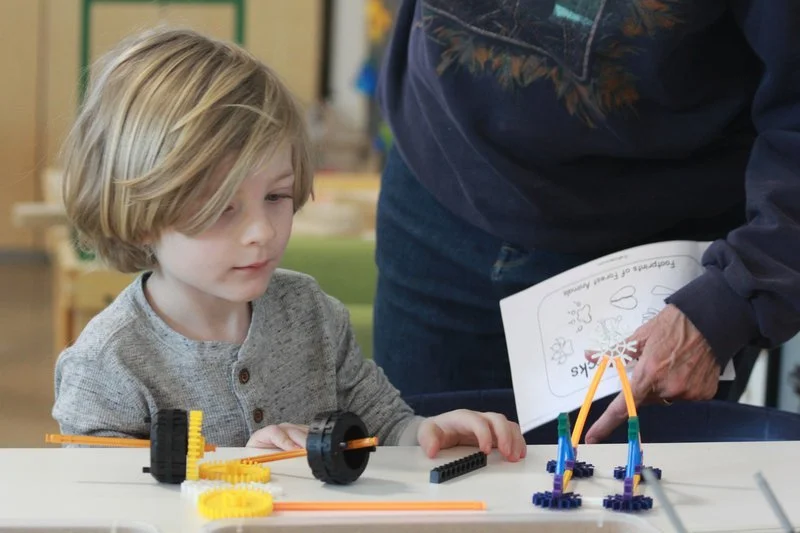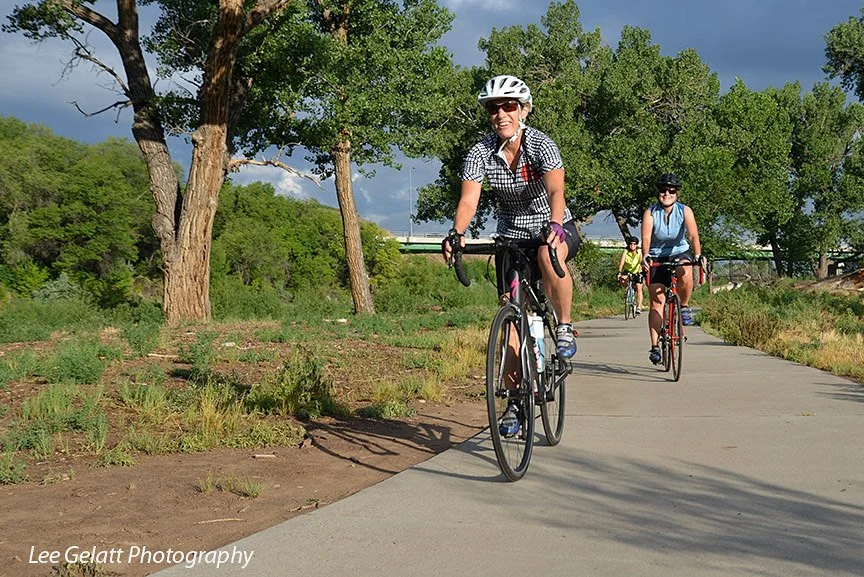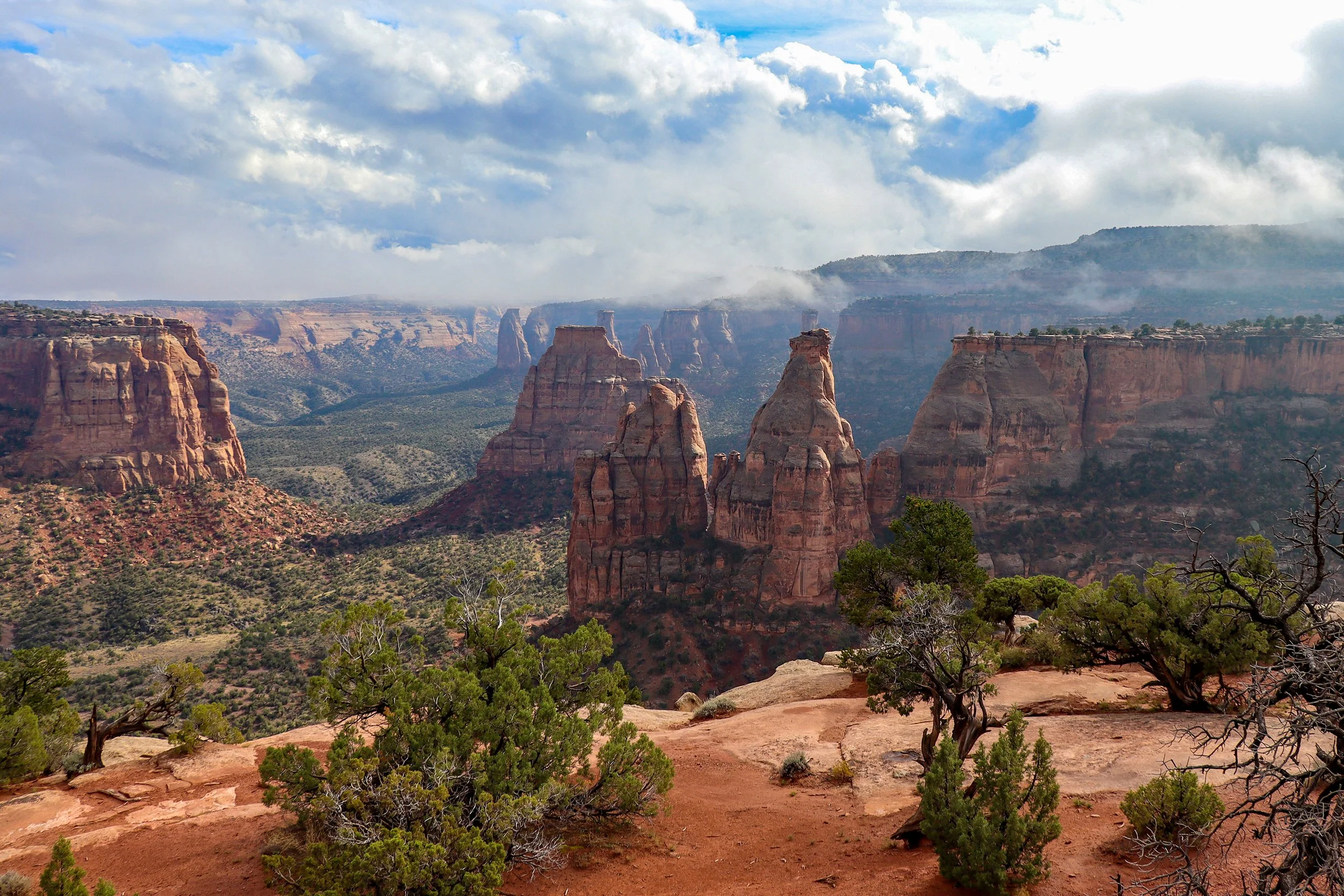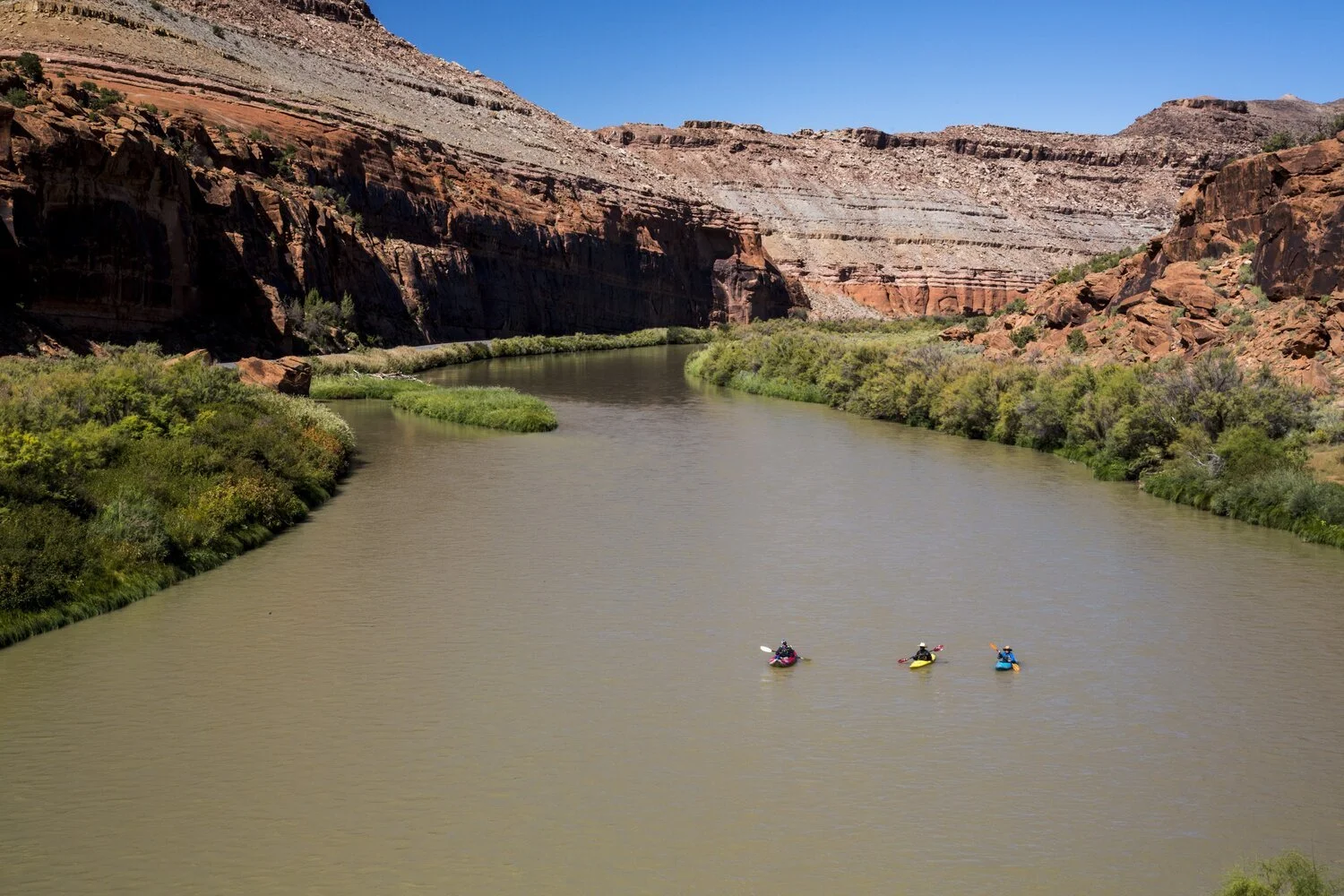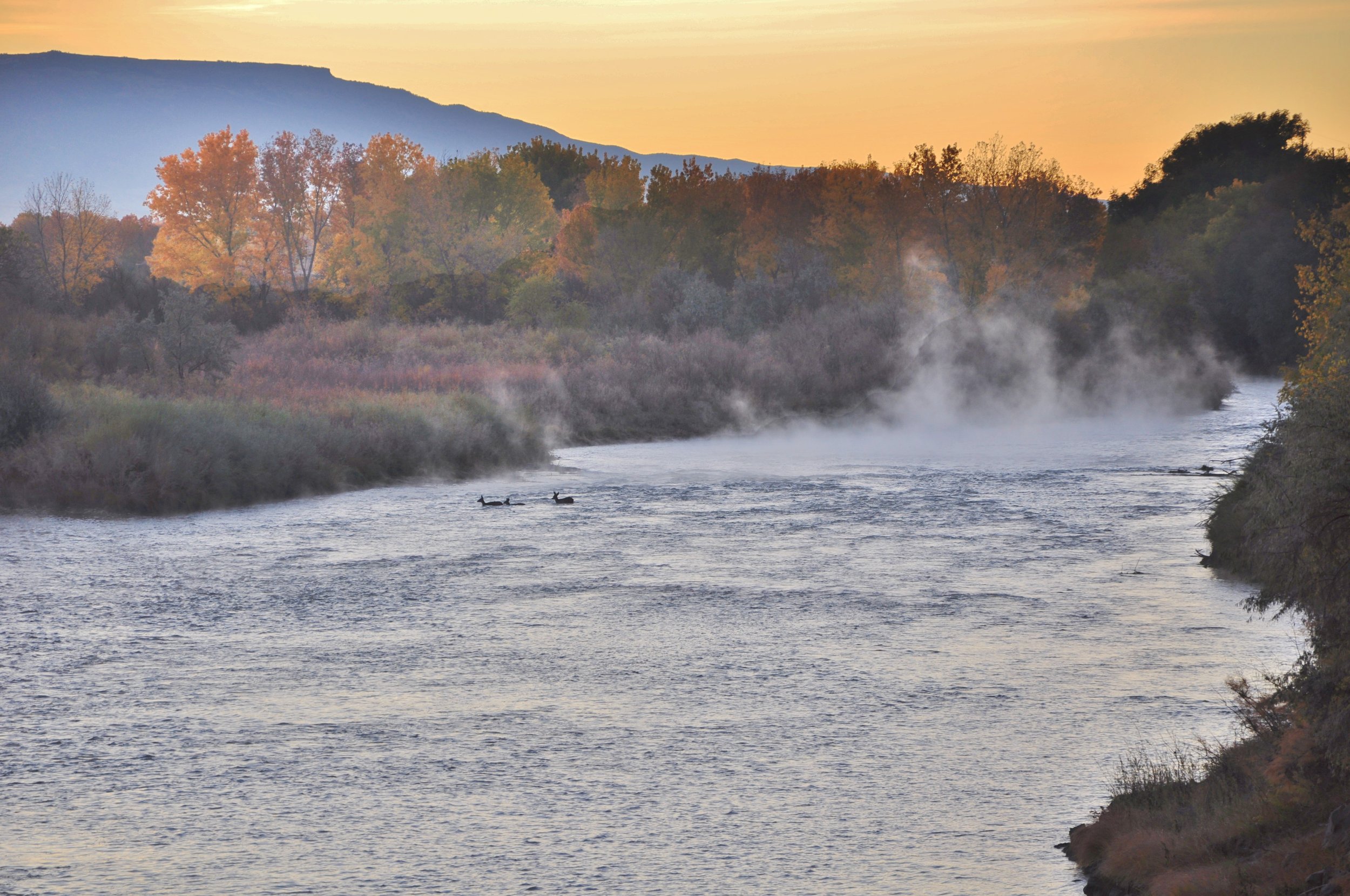
Meet the nonprofit
Partners
Meet the Confluence Center’s Founding Nonprofits:
Who Are We?
Individually, each organization is contributing to western Colorado’s sustainability through science-based education, water and land conservation, restoration, and agricultural and stewardship efforts.
Why Collaborate?
By combining each organization’s work and expertise, the Confluence Center partners will skillfully meet the challenges of solving multifaceted issues related to land and water conservation. Cooperative partnerships and the center’s unique location will lend themselves to natural economies of scale and transformative educational programming to help inspire devoted stewardship and long-lasting change.
Learn more about each nonprofit, below.
RiversEdge West
RiversEdge West (formerly Tamarisk Coalition) was founded in 1999. A leader in collaborative river restoration efforts, RiversEdge West focuses on riparian (riverside) forest and floodplain health in the American West to address impacts from invasive riparian plants such as Russian olive and tamarisk, challenges associated with climate change and habitat fragmentation, as well as stressors that may result in diminished biodiversity and ecosystem services. Invasive plants negatively impact wildlife, recreation, and agricultural production, all of which our local community and economy depend upon.
RiversEdge West works alongside the conservation, recreation, and agricultural communities, sensitively acknowledging the varied knowledge base and interests of those impacted by these river health issues, while encouraging education and awareness in order to produce meaningful change.
By providing clear and concise information on managing invasive riparian plants and reestablishing native plant communities, RiversEdge West is establishing river stewardship for generations. Ensuring accessibility to current information on restoration practices and transparency of new findings is a priority in maintaining active stewardship.
EUREKA! McConnell Science Museum
EUREKA! McConnell Science Museum is a nonprofit organization founded in 1999 by physicist John McConnell, who taught scientific principles to kids through self-invented, hands-on demonstrations. The program was affectionately called SITHOK, “Science In The Hands Of Kids,” and served 5,000 students annually before finding its first home in the New Emerson Elementary School building.
Today, EUREKA! serves over 19,000 students and adult learners annually through 210 STEAM (Science, Technology, Engineering, Arts, and Math) programs, with an impressive interactive facility located on Colorado Mesa University’s campus.
Its mission created in its earliest beginnings remains constant— EUREKA! is dedicated to bringing learning to life by inspiring a passion and respect for STEAM education. STEAM promotes critical thinking and awareness of our environment in hopes to redefine the way people think about, learn about, and interact with science and technology.
One Riverfront
One Riverfront is a volunteer board created in 1987 and charged with the connectivity, conservation, and community stewardship of the Colorado and Gunnison Rivers corridor trail system in western Colorado.
The junction of these two mighty rivers provides a beautiful and rich habitat for wildlife and riparian vegetation in an otherwise arid region and One Riverfront protects access to it.
Collectively referred to as One Riverfront, One Riverfront is two-pronged in its organizational structure; made up of The Colorado Riverfront Commission (RFC), as well as its nonprofit arm, The Colorado Riverfront Foundation. Through private funding and community stewardship with various partners, trail systems were made possible and constructed with funding from public and private partnerships and various partners.
Although One Riverfront has connected 54 miles of trail along the river and helped conceptualize and establish 217 miles of urban trails, including detached trails, bike lanes, bike routes, park paths, soft surface trails and sidewalk trail connections to the main Colorado River corridor, areas of the trail still remain bifurcated and disconnected.
The volunteer board hopes to one day fully realize a completed and connected trail system in Mesa County, as well as the development of a statewide trail system that will link communities via rivers and historic transportation routes.
Colorado National Monument Association
The Colorado National Monument Association (CNMA) is the official nonprofit partner dedicated to the stewardship and preservation of the Colorado National Monument. Through a blend of community engagement initiatives and revenue generated from our gift shop, CNMA provides essential financial support to the monument. This backing is instrumental in fostering a deeper understanding, passion, and commitment to preserving this national treasure.
Founded in 1964, we are devoted to protecting and celebrating the unique landscapes of the Colorado National Monument. Our efforts include funding trail maintenance and historic preservation, ensuring that the monument remains accessible and enjoyable for all. We are committed to fostering a sense of community by bringing together a diverse group of visitors and residents to appreciate the park's beauty, connect with one another, and engage with the natural world around us.
Our community outreach extends through free educational programs, support for ranger-led field trips, and resilience-building initiatives. These programs not only enrich the lives of those who participate but also help cultivate the next generation of stewards dedicated to the preservation of the monument.
The Confluence Center represents a significant opportunity for CNMA to further strengthen our partnerships with community members and other conservation organizations. As our organization continues to grow, having a dedicated space for collaboration, innovation, and engagement would be invaluable in advancing our mission. This center would serve as a hub for creativity and community, amplifying our efforts to protect and celebrate the Colorado National Monument for years to come.
Colorado Canyons Association
Colorado Canyons Association (CCA) fosters community stewardship, education, and awareness of our National Conservation Lands with a focus on McInnis Canyons, Dominguez-Escalante, and Gunnison Gorge National Conservation Areas (NCAs) in western Colorado. Dedicated to deepening the connection between the land and its visitors, CCA outreach programs focus on both the scientific significance and cultural heritage of the National Conservation Areas they steward, remarkably all of which are situated within sixty miles of Grand Junction.
CCA's land and river programs have a positive impact on the community, offering unique, place-based experiential education to students and adults from diverse backgrounds throughout Colorado's western slope. Turning NCAs into outdoor classrooms, and collaborating with the Bureau of Land Management (BLM) and like-minded partners, CCA makes these programs available to school districts and organizations at an affordable rate. CCA believes that all people, regardless of socioeconomic background, should have the opportunity to experience our wild backyards and the natural world. Over half of the students who participate in CCA’s programs qualify for free or reduced school lunch and often come from families who do not have the resources or time to actively engage in our public lands.
National Conservation Areas are home to some of the most pristine landscapes in western Colorado and CCA recognizes the great responsibility that comes in stewarding the land and protecting it for future generations to experience and enjoy.
Colorado West Land Trust
Colorado West Land Trust (CWLT) conserves the iconic landscapes that make western Colorado a wonderful place to call home and helps connect the community to nature.
CWLT works with private property owners to protect and enhance agricultural land, wildlife habitat, recreational areas, and scenic lands in six western Colorado counties, as well as Grand County, Utah.
The organization traces its roots to 1980 when a group of Palisade farmers created CWLT to protect the area’s famed fruit lands threatened by oil shale development. CWLT was established in 2020 through a merger between Mesa Land Trust and the Montrose-based Black Canyon Regional Land Trust. Today, CWLT protects more than 126,000 acres of land through more than six hundred conservation agreements.
CWLT pursues its mission through land protection, stewardship, outreach, and education programs. Through these channels, the organization serves the farming and ranching community, preserves wildlife and riparian habitat, expands land and trails for recreationists, protects views and open space, and helps ensure the availability of local food.
Photo by Robb Reece Photography.




